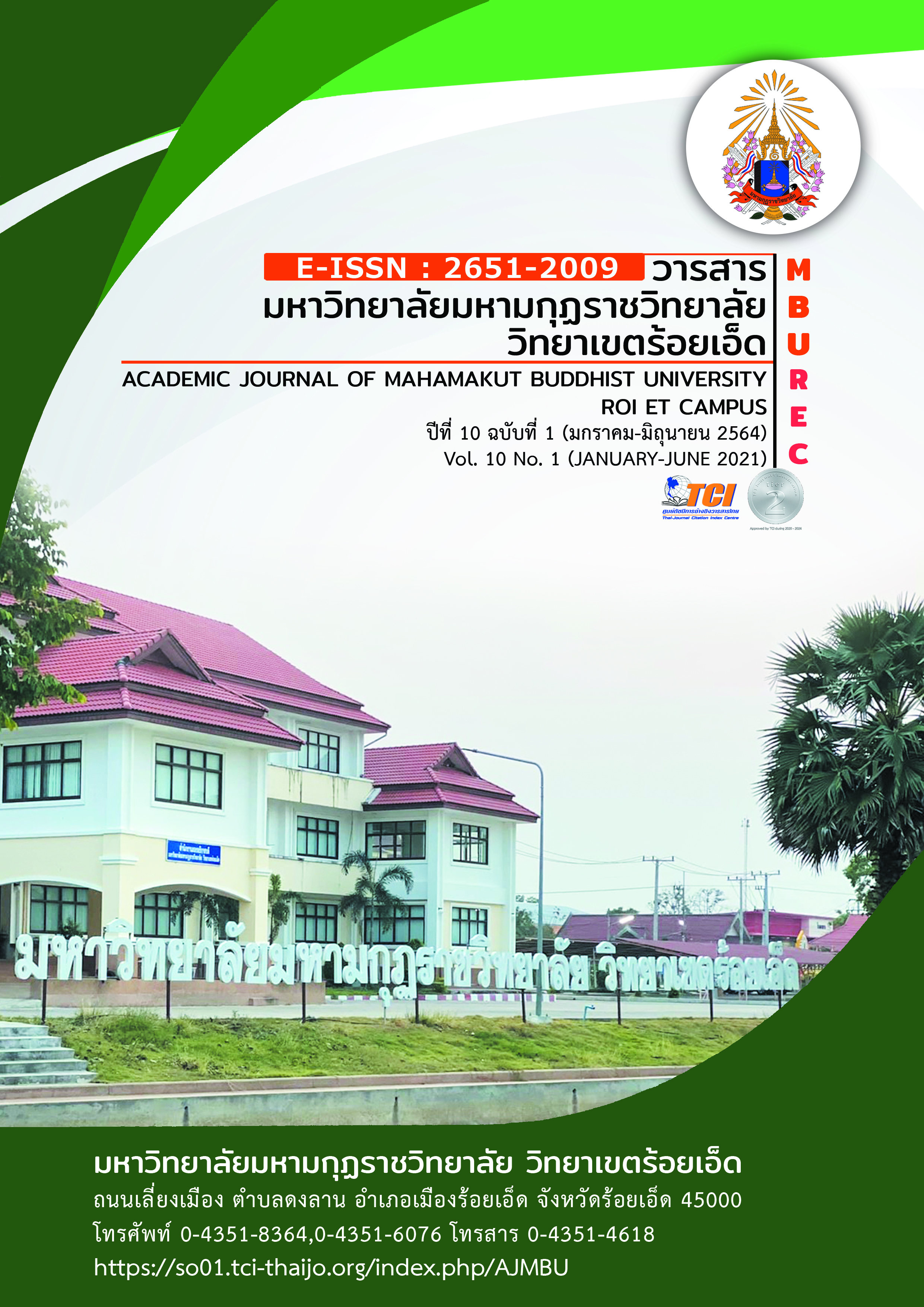The Implementation of Education according to KKU Smart Learning Project of school directors and teachers in secondary schools in KhonKaen Province
Main Article Content
Abstract
The objective of the research article were to study the readiness and application of smart education according to KKU Smart Learning Project of school directors and teachers in secondary schools in KhonKaen Province. The researcher employed the qualitative research of a multiple case study and the data were collected from in-depth interviews of 20 key informants, consisting school directors and teachers in three subjects including: Science, Mathematics and English from five secondary schools participating in the KKU Smart Learning Project in KhonKaen Province.
The research found that in terms of readiness, the school director selected suitable teachers to attend the training, allocated budgets for the provision of educational equipment and materials to align with the ‘smart classroom’ requirements, and performed supervision, monitoring, and evaluation on a regular basis. Moreover, teachers prepared appropriate lesson plans and created a learning environment in the classrooms that were conducive to learning. In terms of application of the smart learning innovation, the schools had selectively adopted the innovation and applied online media to fit the contents of each of the subjects. The findings imply that successful implementation of smart education relies on the understandings, adoption and adaptation to local contexts by school directors and teachers.
Article Details
References
กระทรวงศึกษาธิการ. (2542). พระราชบัญญัติการศึกษาแห่งชาติ พ.ศ. 2542. กรุงเทพมหานคร : บริษัท สยามสปอรต์ซินดิเคท จำกัด.
จันทวรรณ ปิยะวัฒน์. (2555). โครงการกระตุ้นการมีส่วนร่วมของประชาชนผ่านสื่ออิเล็กทรอนิกส์ สำหรับสำนักงานรัฐบาลอิเล็กทรอนิกส์(องค์การมหาชน) ปัญหาเทคโนโลยีทางการศึกษา. สืบค้นเมื่อ 17 ธันวาคม 2562. จาก https://cdn.gotoknow.org/assets/ media/files/000/853/839/original_Edu_it_problems.p df?1354259689
พัชรา วาณิชวศิ. (2558). การประยุกต์ใช้คอมพิวเตอร์ปรับวิธีเรียนเปลี่ยนวิธีสอนในห้องเรียนอัจฉริยะ. วารสารศึกษาศาสตร์ปริทัศน์. 30(3). 131-138.
มหาวิทยาลัยขอนแก่น. (2562). KKU Smart Learning Academy. สืบค้นเมื่อ 17 ธันวาคม 2562. จาก https://www.kkusmartlearning.com/main/index.php/news-all/311-2019-10-24-02-58-21
วรวุฒิ รามจันทร. (2554). นวัตกรรมการศึกษาและการเรียนรู้ อย่างสร้างสรรค์ในสถาบันการศึกษายุคใหม่. วารสารร่มพฤกษ์ มหาวิทยาลัยเกริก. 30(1). 117-138.
วิจารณ์พานิช. (2555). วิถีสร้างการเรียนรู้เพื่อศิษย์ในศตวรรษที่ 21. กรุงเทพมหานคร : มูลนิธิสดศรี-สฤษดิ์วงศ์.
สำนักงานคณะกรรมการพัฒนาการเศรษฐกิจและสังคมแห่งชาติ. (2560). แผนพัฒนาเศรษฐกิจและสังคมแห่งชาติ ฉบับที่ 12 พ.ศ. 2560-2564. กรุงเทพมหานคร : สำนักงานคณะกรรมการพัฒนาการเศรษฐกิจและสังคมแห่งชาติ สำนักนายกรัฐมนตรี.
สำนักงานเลขาธิการสภาการศึกษา กระทรวงศึกษาธิการ. (2557). แนวทางการพัฒนาการศึกษาไทยกับการเตรียมความพร้อมสู่ศตวรรษที่ 21. กรุงเทพมหานคร : บริษัทพริกหวานกราฟฟิคจำกัด.
สำนักงานเลขาธิการสภาการศึกษากระทรวงศึกษาธิการ. (2560). แผนการศึกษาแห่งชาติ พ.ศ. 2560–2579. กรุงเทพมหานคร : บริษัทพริกหวานกราฟฟิคจำกัด.
สถาบันส่งเสริมการสอนวิทยาศาสตร์และเทคโนโลยี. (2562). ผลการประเมิน PISA 2018 : บทสรุปสำหรับผู้บริหาร. สืบค้นเมื่อ 8 พฤศจิกายน 2562.จาก https://pisathailand.ipst.ac.th/news- 12/
Yoany, B. (2006). Distance Education Trends: Integrating new technologies to foster student interaction and collaboration. Distance Education. 27(1). 139-153.


